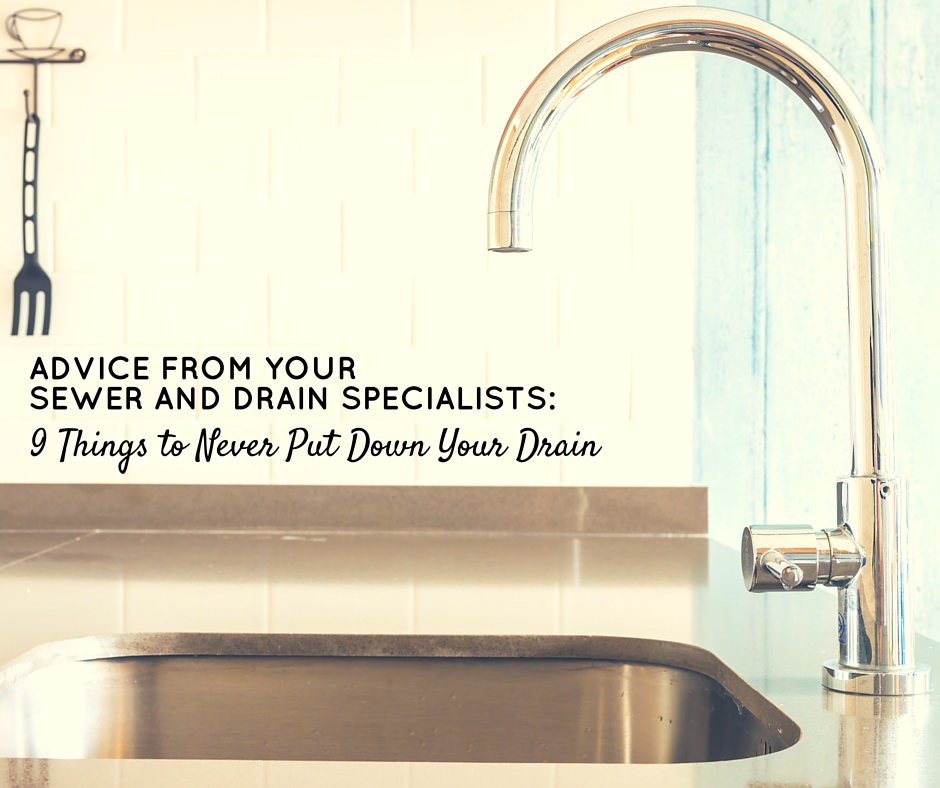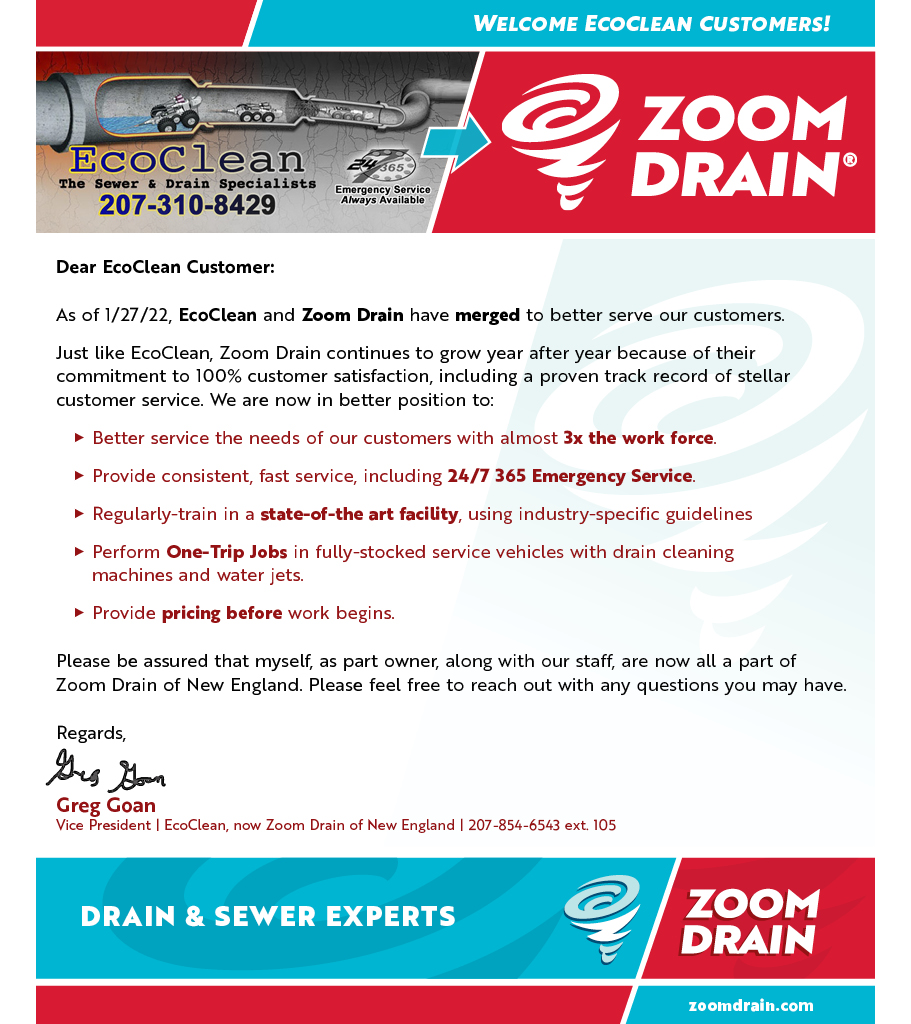
For most people, what they pour down their sewer and drain systems is a mere afterthought. All too often, our momentary eagerness to get rid of waste products overshadows the correct place to actually discard them. Simply pouring the wrong thing down your kitchen sink or flushing down your toilet bowl can lead to thousands of dollars worth of sewer and drain repair fees.
Our sewer and drain specialists at EcoClean understand that not everyone is aware of the rules and conditions that surround proper sewer and drain maintenance. Below we have put together a helpful list of items you should not be casually tossing down your drains!
Coffee Grounds
A common misconception among avid coffee drinkers is that coffee grounds can go down the drain and not create a problem. Contrary to their belief, coffee grounds are a big threat to drain systems and are of the leading reasons for pipe blockages.
Oils
If you know your way around the kitchen, then you also know that It’s impossible to cook without oil! That’s why popular cooking oils such as olive oil, vegetable oil, coconut oil, and salad dressings often get mixed up in the shuffle of dirty dishes and end up down the kitchen drain. Remember to separate your oil remnants from other foods, as oils can truly obstruct the infrastructure of your draining system.
Fats
Much like oils, fats are another understated threat to sewer and drain systems. Fats are often incorporated in cooking, baking, and everyday eating, which is why they are lobbed in the sink with other harmless liquids. Be sure not to place fats like butter, ice cream, dairy products, shortening, and nut butters in your kitchen sink. If any one of these drain offenders pile up in your kitchen sink drain, you will assuredly need to contact your local sewer and drain specialists for pipe repair.
Produce Stickers
Fruits and vegetables are one of the most common food items that are washed inside of the kitchen sink. However, it isn’t uncommon that while we wash our fruits and veggies clean, we also accidently push the produce stickers down the drain! Produce stickers can get stuck in your drains, snatched on screens and filters, or pass through and end up in the water. Next time you are cleaning your apples and tomatoes, be sure to peel off the sticker before running it under the kitchen faucet.
Paint
While paint might be a more obvious item to keep away from your drains, many people have missed the memo. Paint is an obvious no-no as it is similar to that of oils and thinners. It also can tarnish the insides of your pipes that will in turn lead to corrosion and rust, making it obvious that paint residue belongs in a hazardous waste facility—not your kitchen sink.
Medicine
Even after your medication has expired, it is never a good idea to flush it down the toilet bowl. Keeping in mind that our wastewater supply is treated and recycled, we want to keep it as chemical free as possible. Both OTC and prescription medications contain chemicals in them that we do not want reaching our wastewater supply. Instead of putting old pills in the toilet, crush them up into coffee grounds or dirt and simply throw it away in the trash!
Antifreeze
Much like paint and medication, keeping antifreeze and other car fluids away from our drains and pipes is another step in protecting our waterways. Antifreeze should be disposed of in a hazardous waste facility and kept out of your household drain systems.
Eggshells
If you have a garbage disposal there is a good chance you may have thrown eggshells in it once or twice. However, eggshells have straggly membranes that can surround your disposal’s shredder ring, which are then turned into a super granular material that can lead to severe drain clogging.
Paper Towels & Cotton
It is not a myth that paper towels and cotton products have a significantly different absorbency mechanism than toilet paper. This mechanism makes these two products, if flushed down the toilet, a high-risk contender for clogging pipes. Rather than flushing these paper towels and cotton down the loo, consider a more environmentally sound option like composting!

